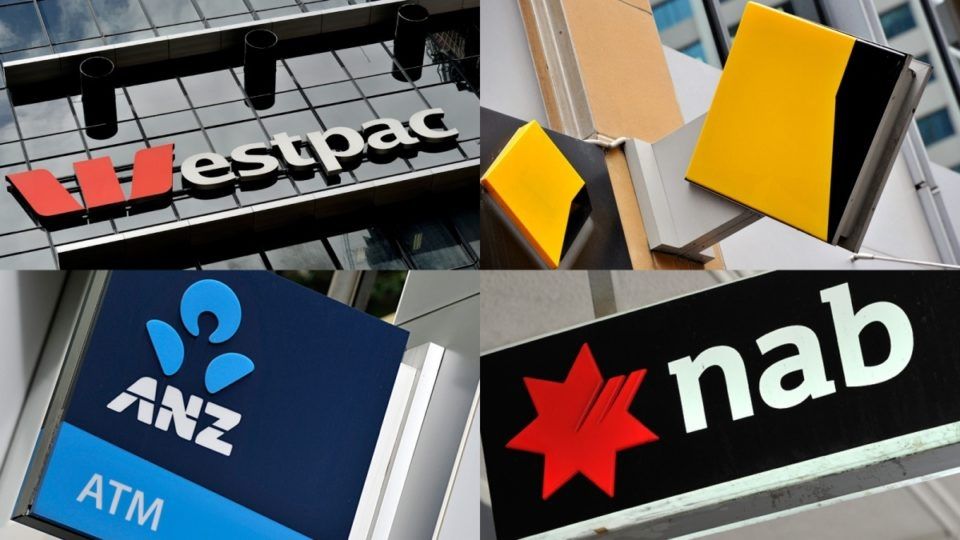For anyone who hasn't done much in the way of Property Development, the concept of commercial lending is probably a bit vague. Most of us rely on residential lending.
But when you get into property development there’s a good chance that as your projects scale up in size, you’ll eventually scale into commercial lending. The good news is that unlike standard residential loans, the terms for commercial property loans are often negotiable.
But before we break down the key differences between residential and commercial, let's take a quick look at what both you and the lender need to think about when it comes to loans.
LVR, loan size and rates
When you approach a lender as a property developer, there's a number of things they’re going to be looking at, especially how much you’re wanting to borrow and at what level of gearing.
Most of you will be familiar with the term LVR or ‘loan to value ratio’. That's effectively how much cash we've actually got as a deposit for the deal, versus how much we'll be borrowing.
Then there's the different kinds of lenders that can actually lend which include bank, non-bank, mezzanine and private lending.
The interest rates will vary depending upon who the lending provider is, the amount of security and the type of loan.

In the residential space we've got our primary lenders – the big banks – that typically prefer what we call full doc loans. They want to see all of your documentation and they want it to be 100% compliant so they can determine whether or not you can actually service that loan.
Low doc loans, on the other hand, tend to be provided by lenders that are a little bit more flexible. They understand that if you're self employed getting that documentation in place can be a little bit more challenging. They might request a letter from your Accountant confirming your income.
But generally speaking lenders are expecting you to purchase a property and they're assessing your ability to pay back that loan over a 20 to 30 year period. If you tick all the right boxes and they approve your loan application, the bank then sits back and lets the interest roll in.
And that’s where banks can baulk at offering a residential loan to a property developer.
You see, banks want to make money too...
The whole idea with Property Development is to pay back any loan as quickly as possible.
Sometimes it's as quick as six months and sometimes it might be as long as 24 months depending upon the development site and the project we're trying to do. The bank doesn't really make much money in that process, because they are relying on the long-haul, 30-year loans to bring in the cash.
That said, you may be able to get away with a residential loan product for a super-small scale development. There are some banks who will lend up to 80% LVR for projects up to four land lots or dwellings, giving you access to lower interest rates.
Anything above four and you're absolutely going to be commercial, and the bank will want anywhere between a 30% and a 40% deposit depending on the project and the associated risks.
This means you have to stump up a lot more cash or a lot more security in order to actually get a loan. And because the bank is anticipating a short payback period, they add a bit of a premium into the interest rate, both for the risk of the property development and to compensate for the shorter loan period.
Profitability vs Serviceability
The application process for a commercial loan is actually quite different.
Instead of looking at your ability to service the debt, what they’re looking at is more the strength of the deal itself. If you can show that the deal is profitable and that you have an exit strategy where they can get their money back, typically they're going to look favourably on your application.
One of the ways a commercial lender mitigates their risk is to require pre-sales before they approve the loan. This means you’ll be selling property that doesn’t exist yet, known as selling off-the-plan.
 Big banks operating in the commercial space will want to see a minimum of 100% debt coverage. So if your total development cost is going to be $2 million, they're going to want to see $2 million worth of sales of the finished product before they will lend you the money.
Big banks operating in the commercial space will want to see a minimum of 100% debt coverage. So if your total development cost is going to be $2 million, they're going to want to see $2 million worth of sales of the finished product before they will lend you the money.
Some banks want as much as 120% debt coverage.
So that's something to be careful of as you move from your primary banks down to your secondary banks, and from there to your dedicated specialty lenders and mezzanine lenders because while the requirement for pre sales may drop, the interest rate actually goes up to compensate.
 Buy now pay later
Buy now pay later
On the bright side, instead of paying monthly interest as you would for a residential loan, you can usually capitalise the interest on a commercial loan. This means the interest gets tacked on to the end of the deal, so you can use all available funds to run the deal rather than repay the loan.
Rather than stress over the higher interest rates, you should simply treat them as a cost of doing business. Remember, the beauty of the commercial space is that you don’t need the serviceability you need with a residential loan, so you can do a much larger development site deal and borrow a lot more than you would be able to in the residential space.
Stay tuned for more about Finance & Lending soon.
But when you get into property development there’s a good chance that as your projects scale up in size, you’ll eventually scale into commercial lending. The good news is that unlike standard residential loans, the terms for commercial property loans are often negotiable.
But before we break down the key differences between residential and commercial, let's take a quick look at what both you and the lender need to think about when it comes to loans.
LVR, loan size and rates
When you approach a lender as a property developer, there's a number of things they’re going to be looking at, especially how much you’re wanting to borrow and at what level of gearing.
Most of you will be familiar with the term LVR or ‘loan to value ratio’. That's effectively how much cash we've actually got as a deposit for the deal, versus how much we'll be borrowing.
Then there's the different kinds of lenders that can actually lend which include bank, non-bank, mezzanine and private lending.
The interest rates will vary depending upon who the lending provider is, the amount of security and the type of loan.
In the residential space we've got our primary lenders – the big banks – that typically prefer what we call full doc loans. They want to see all of your documentation and they want it to be 100% compliant so they can determine whether or not you can actually service that loan.
Low doc loans, on the other hand, tend to be provided by lenders that are a little bit more flexible. They understand that if you're self employed getting that documentation in place can be a little bit more challenging. They might request a letter from your Accountant confirming your income.
But generally speaking lenders are expecting you to purchase a property and they're assessing your ability to pay back that loan over a 20 to 30 year period. If you tick all the right boxes and they approve your loan application, the bank then sits back and lets the interest roll in.
And that’s where banks can baulk at offering a residential loan to a property developer.
You see, banks want to make money too...
The whole idea with Property Development is to pay back any loan as quickly as possible.
Sometimes it's as quick as six months and sometimes it might be as long as 24 months depending upon the development site and the project we're trying to do. The bank doesn't really make much money in that process, because they are relying on the long-haul, 30-year loans to bring in the cash.
That said, you may be able to get away with a residential loan product for a super-small scale development. There are some banks who will lend up to 80% LVR for projects up to four land lots or dwellings, giving you access to lower interest rates.
Anything above four and you're absolutely going to be commercial, and the bank will want anywhere between a 30% and a 40% deposit depending on the project and the associated risks.
This means you have to stump up a lot more cash or a lot more security in order to actually get a loan. And because the bank is anticipating a short payback period, they add a bit of a premium into the interest rate, both for the risk of the property development and to compensate for the shorter loan period.
Profitability vs Serviceability
The application process for a commercial loan is actually quite different.
Instead of looking at your ability to service the debt, what they’re looking at is more the strength of the deal itself. If you can show that the deal is profitable and that you have an exit strategy where they can get their money back, typically they're going to look favourably on your application.
One of the ways a commercial lender mitigates their risk is to require pre-sales before they approve the loan. This means you’ll be selling property that doesn’t exist yet, known as selling off-the-plan.
Some banks want as much as 120% debt coverage.
So that's something to be careful of as you move from your primary banks down to your secondary banks, and from there to your dedicated specialty lenders and mezzanine lenders because while the requirement for pre sales may drop, the interest rate actually goes up to compensate.
On the bright side, instead of paying monthly interest as you would for a residential loan, you can usually capitalise the interest on a commercial loan. This means the interest gets tacked on to the end of the deal, so you can use all available funds to run the deal rather than repay the loan.
Rather than stress over the higher interest rates, you should simply treat them as a cost of doing business. Remember, the beauty of the commercial space is that you don’t need the serviceability you need with a residential loan, so you can do a much larger development site deal and borrow a lot more than you would be able to in the residential space.
Stay tuned for more about Finance & Lending soon.
